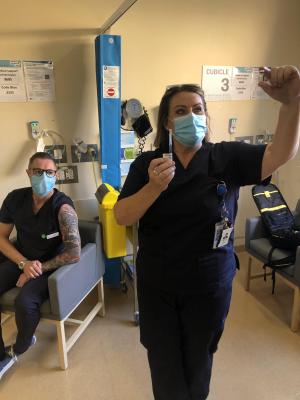Benjamin Millar
The COVID-19 pandemic has placed incredible strain on already stretched frontline healthcare workers, according to a national survey led by Victoria University researchers.
Almost 6670 Australian frontline healthcare workers have shared their experiences at the height of the pandemic in 2020, responding to a question about the main challenges they faced.
The study revealed that COVID exacerbated cracks in a system already under stress in terms of job satisfaction, workforce retention and patient care.
Lead author Karen Willis from Victoria University said the study arrives as the Australian Medical Association releases modelling that predicts hundreds of beds in the nation’s hospitals could be permanently full of COVID-19 patients each day as restrictions ease, leading to overcrowding in emergency departments and extended wait times for elective surgeries.
“The study shows that the COVID-19 pandemic had added pressures to an already strained workplace and has created new stresses and challenges for our frontline healthcare workers including increased workloads, unfamiliar tasks outside their usual scope of work, disruption of established teams and rapidly changing procedures,” she said.
“The overriding message was that there is a need for a safe workplace, where frontline healthcare workers feel valued and where there is a focus on retaining and supporting the workforce, which then translates into high quality patient care.”
The data was collected as part of the anonymous online Australian COVID-19 Frontline Healthcare Workers Study by Victoria University and Monash University researchers.
Professor Willis said that even before the arrival of COVID-19, some frontline healthcare workers described their work environments as “extreme”, with COVID-19 exacerbating work-life imbalance, impacting their personal lives, and presenting a range of work-based challenges.
The study also highlighted concerns about changes to the provision of patient care, job uncertainty and rapid changes to work practices and guidelines.








